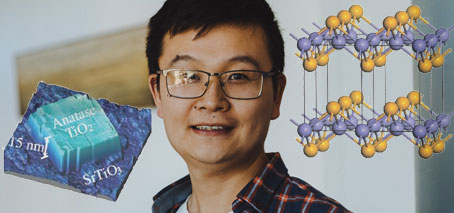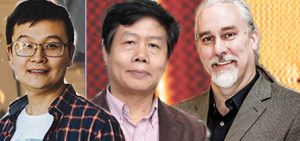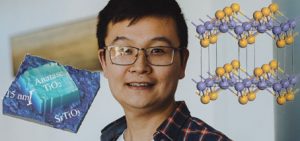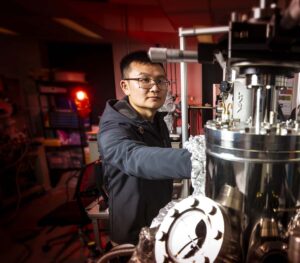
“The ultimate goal of superconductor research is achieving a transition temperature at or higher than room temperature” FLEET AI Dr Zhi Li (University of Wollongong)
Congratulations to FLEET AI Dr Zhi Li (UOW) who received an ARC Future Fellowship in this month’s announcement.
The new ARC Fellowship will support Dr Li’s study of iron-based high-temperature topological superconductors, based at the Institute of Superconducting and Electronic Materials (ISEM) at the University of Wollongong.
The topological non-trivial nature and zero resistance of topological superconductors make them very promising in the application of future electronic devices.
Atomically-thin superconductors (whether iron based or copper based) are a type of ‘high temperature’ (Type II or unconventional) superconductor in that they have a transition temperature (Tc) much higher than a few degrees Kelvin above absolute zero.
Dr Li’s project aims to achieve intrinsic and robust topological superconductors at high-temperature by engineering iron-based superconductors via precisely controlling the defects, chemical doping, interface and substrates.
Expected outcomes of this project will include high-temperature iron-based topological superconductors as new material platforms for the study of exotic properties of topological superconductivity and future applications in high-temperature fault-tolerant quantum computing.
Dr Zhi Li is a condensed -matter physicist with a background in topological insulators, interface superconductors and two dimensional materials. Within FLEET, Scientific Associate Investigator Li’s expertise in molecular beam epitaxy and scanning tunneling microscopy provides key support to the study of novel topological materials, with high-quality materials provided to investigators across the Centre.
The ARC Centre of Excellence for Future Low-Energy Electronics Technologies (FLEET) is a collaboration of more than 100 researchers, seeking to develop ultra-low energy electronics to face the challenge of energy use in computation, which already consumes eight per cent of global electricity, and is doubling each decade
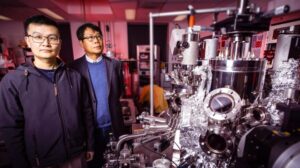
Dr Zhi Li and Professor Xiaolin Wang in the lab at UOW’s Institute for Superconducting and Electronic Materials.
FLEET CIs Prof Xiaolin Wang (also at UOW) and Prof Michael Fuhrer (Monash) are Zhi Li’s co-mentors for the Fellowship project, which focuses on electronic topology. Prof Fuhrer is also the co-mentor of Dr Li’s ARC DECRA on atomically-thin antimony.
Future Fellowships reflect the Australian Government’s commitment to excellence in research by supporting excellent mid-career researchers to undertake high-quality research in areas of national and international benefit.
Minister for Education Alan Tudge recently announced the 2021 Future Fellows who will share $93m in funding to “ keep Australia at the forefront of global research”. See press release.
Read more about Dr Li’s work:

